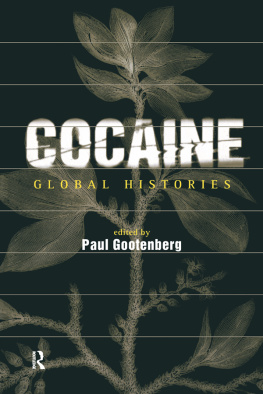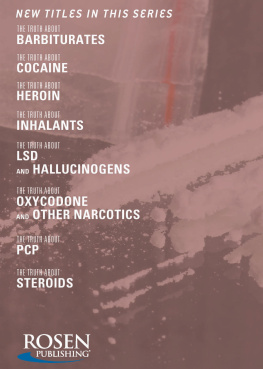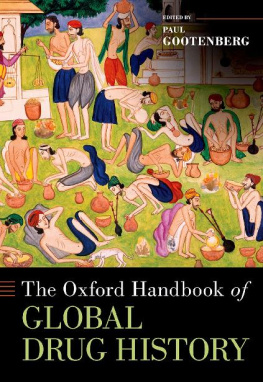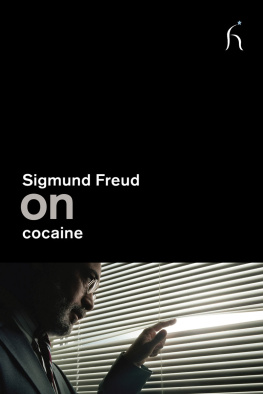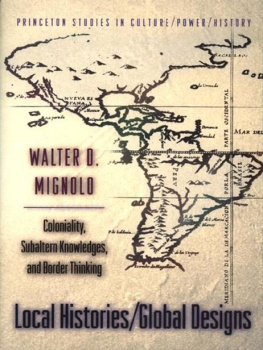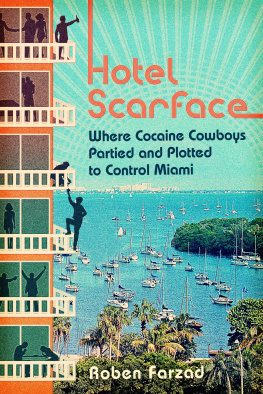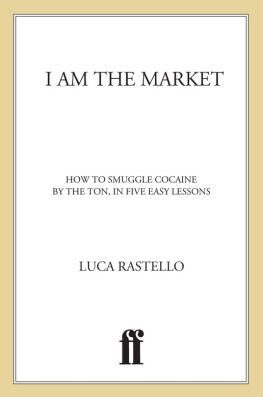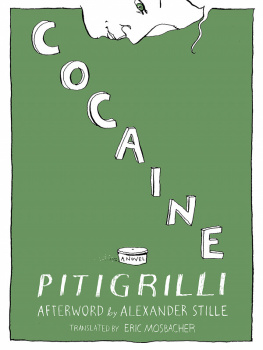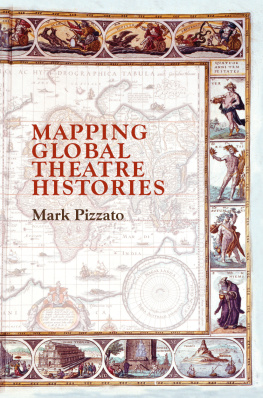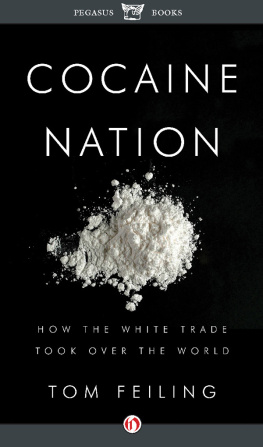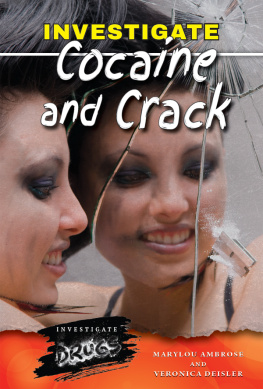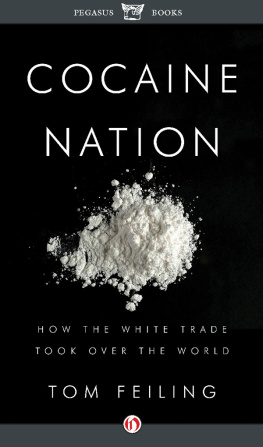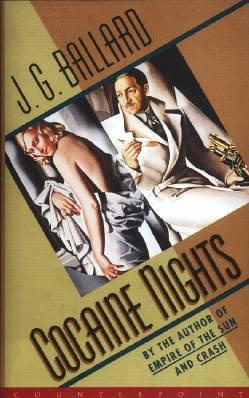Gootenberg - Cocaine: global histories
Here you can read online Gootenberg - Cocaine: global histories full text of the book (entire story) in english for free. Download pdf and epub, get meaning, cover and reviews about this ebook. City: London, year: 2006, publisher: Taylor & Francis (CAM);Routledge, genre: Politics. Description of the work, (preface) as well as reviews are available. Best literature library LitArk.com created for fans of good reading and offers a wide selection of genres:
Romance novel
Science fiction
Adventure
Detective
Science
History
Home and family
Prose
Art
Politics
Computer
Non-fiction
Religion
Business
Children
Humor
Choose a favorite category and find really read worthwhile books. Enjoy immersion in the world of imagination, feel the emotions of the characters or learn something new for yourself, make an fascinating discovery.
- Book:Cocaine: global histories
- Author:
- Publisher:Taylor & Francis (CAM);Routledge
- Genre:
- Year:2006
- City:London
- Rating:4 / 5
- Favourites:Add to favourites
- Your mark:
- 80
- 1
- 2
- 3
- 4
- 5
Cocaine: global histories: summary, description and annotation
We offer to read an annotation, description, summary or preface (depends on what the author of the book "Cocaine: global histories" wrote himself). If you haven't found the necessary information about the book — write in the comments, we will try to find it.
Cocaine: global histories — read online for free the complete book (whole text) full work
Below is the text of the book, divided by pages. System saving the place of the last page read, allows you to conveniently read the book "Cocaine: global histories" online for free, without having to search again every time where you left off. Put a bookmark, and you can go to the page where you finished reading at any time.
Font size:
Interval:
Bookmark:
Global histories
Truly international in its scope, Cocaine is the first historical survey of perhaps the most paradoxical of this centurys major narcotics. Readers will welcome the balanced attention given to the scientific, medical, commercial, legal and cultural dimensions of the story.
Roy Porter, Wellcome Institute for the History of Medicine
Cocaine history is back, more sophisticated than ever. Cocaine: Global Histories is an important resource for anyone interested in drug history and politics, and an indispensable one for those who would understand cocaine in global context.
David Courtwright, University of North Florida
Originally a medical miracle, cocaine is now a dangerous pariah drug. Cocaine: Global Histories examines the rise and fall of this notorious substance. In the nineteenth century it was openly legal and legitimately used by scientists, doctors and pharmaceutical giants alike. This contrasts starkly with the international prohibitionist regimes and underground circuits linked to cocaine today.
Drawing on exciting new global perspectives, Cocaine analyses and rethinks the origins of the modern drug cocaine. For the first time, a book brings together the worlds leading writers on the history of cocaine. Themes explored include:
the early manufacture, sale and control of cocaine in the United States;
Amsterdams complex cocaine network;
Japan and the unknown Southeast Asian cocaine industry;
export of cocaine prohibitions to Peru;
sex, drugs and race in London.
Cocaine unveils new sources and covert social, cultural and political transformations that shed light on cocaines hidden history. This volume is essential reading for anyone concerned with the place of drugs in the modern world.
Paul Gootenberg is Professor of History at the State University of New York, Stony Brook, and author of Between Silver and Guano (Princeton, 1989) and Imagining Development (California, 1993).
Cocaine
Global histories
Edited by Paul Gootenberg

First published 1999
by Routledge
Published 2014 by Routledge
2 Park Square, Milton Park, Abingdon, Oxon OX14 4RN
711 Third Avenue, New York, NY 10017, USA
Routledge is an imprint of the Taylor & Francis Group, an informa business
1999 selection and editorial matter, Paul Gootenberg; individual chapters, the contributors
Typeset in Baskerville by Roudedge
All rights reserved. No part of this book may be reprinted or reproduced or utilized in any form or by any electronic, mechanical, or other means, now known or hereafter invented, including photocopying and recording, or in any information storage or retrieval system, without permission in writing from the publishers.
British Library Cataloguing in Publication Data
A catalogue record for this book is available from the British Library
Library of Congress Cataloging in Publication Data
A catalogue record for this book has been requested
ISBN: 978-0-415-19247-7 (hbk)
PAUL GOOTENBERG
PART I
Amer-Andean connections (the United States, Peru)
JOSEPH F. SPILLANE
PAUL GOOTENBERG
PART II
European axis, Asian circuits (Germany, Britain, the Netherlands and Java, Japan)
H. RICHARD FRIMAN
MAREK KOHN
MARCEL DE KORT
STEVEN B. KARCH, MD
PART III
The new American nexus (Colombia, Mexico)
MARY ROLDN
LUIS ASTORGA
Luis Astorga, from the state of Sinaloa (Mexico), is a sociologist and investigator at the Instituto de Investigaciones Sociales, UNAM (National University of Mexico). He is the author of two recent books on drugs in Mexico, Mitologa del narcotraficante en Mxico (Plaza y Valds, 1995) and El siglo de las drogas (Espasa-Hoy, 1996). His area of study now is border trafficking since 1900.
H. Richard Friman is Associate Professor of Political Science at Marquette University. He published NarcoDiplomacy: Exporting the US War on Drugs (Cornell University Press, 1996) and varied articles on relations between developed countries in the global drug trade. His current research is on immigration, drug control, and social order in the advanced industrial states.
Paul Gootenberg is a Professor of Latin American History at SUNY-Stony Brook. He has authored Between Silver and Guano (Princeton University Press, 1989) and Imagining Development (University of California Press, 1993), and sundry works on Andean economic, social, and intellectual history. His current project is an archival history of Andean cocaine from 18801960.
Steven B. Karch, MD, a forensic pathologist, is Assistant Medical Examiner for the City and County of San Francisco. A recognized medical authority on cocaine, his textbook The Pathology of Drug Abuse (CRC Press, 1996) is standard reference in the field. He recently published A Brief History of Cocaine (CRC Press, 1998).
Marek Kohn is a British writer, journalist, and cultural historian. His works include Narcomania: On Heroin (Faber & Faber, 1987) and The Dope Girls: The Birth of the British Drug Underground (Lawrence & Wishart, 1992) and other books. He currently writes on race and bio-technologies.
Marcel de Kort studied at Rotterdams Erasmus University, where he received a Ph.D. in 1995 with a thesis on the history of Dutch drug policy. At the University of Amsterdam Institute of Criminology he worked on projects on drug trades and law enforcement. He is now a drug policy adviser at the Ministry of Health, Welfare and Sport of the Netherlands.
Ethan Nadelmann taught politics and public policy at Princetons Wilson School and is the author of Cops Across Borders (Penn State Press, 1993). He has edited several recent books on harm reduction and drug policy reform. He is Director of the Lindesmith Center, the New York drug policy institute, an affiliate of the Soros Open Society Institute.
Mary Roldn earned her doctorate in History from Harvard University in 1992 and teaches Latin American History at Cornell. She has worked extensively in Colombia while completing a book on the social history of La Violencia in Colombia (194653) entided Hegemony and Violence: Class, Culture and Politics in Twentieth-Century Antioquia.
Joseph F. Spillane is Assistant Professor of History at the University of Florida at Gainesville, and with their Center for Studies in Criminology and Law. He is the author of Cocaine: From Medical Marvel to Modem Menace in the United States, 18841920 (Johns Hopkins University Press, 1999). Besides the history of United States drug control, his interests span criminal justice and urban public policy.
Ethan Nadelmann
During the late 1980s precisely one decade ago cocaine became something of a national obsession in the United States. The war on drugs, rhetorically dormant since the Nixon Administration, found a new life in cocaine. TV news programs reported day after day on drug enforcement operations, crack babies, and cocaine-related acts of violence. News magazines put it on their covers. President Bush gave a nationally televised speech to the nation on the cocaine threat. Public opinion polls pointed to drugs notably cocaine as the number one concern of American citizens. Outside of the United States, Colombia reminded some of Chicago during Prohibition, albeit on a much more substantial and deadly scale. Bolivia and Peru were implicated as well as producers and exporters of the raw and semi-refined coca materials used to produce cocaine. Elsewhere, in Europe, Asia, Africa, and beyond, cocaine was largely a non-issue, though some cocaine scares were to erupt mere, too.
Font size:
Interval:
Bookmark:
Similar books «Cocaine: global histories»
Look at similar books to Cocaine: global histories. We have selected literature similar in name and meaning in the hope of providing readers with more options to find new, interesting, not yet read works.
Discussion, reviews of the book Cocaine: global histories and just readers' own opinions. Leave your comments, write what you think about the work, its meaning or the main characters. Specify what exactly you liked and what you didn't like, and why you think so.

